- Home
- Robert B. Parker
A Savage Place
A Savage Place Read online
DETECTIVE FANS HAVE DISCOVERED SPENSER!
“The best new private eye in fiction since Raymond Chandler.”
—Dan Wakefield
“As tough as they come and spiked with a touch of real class.”
—Kirkus Reviews
“Tough, wisecracking, unafraid, lonely, unexpectedly literate—in many respects the very exemplar of the species.”
—The New York Times
“Lots of action, clever dialogue, and sharp plotting, and if you’ve never met the irrepressible Spenser, A Savage Place is the perfect introduction.”
—Book-of-the-Month Club News
“The most gripping Spenser novel of them all.”
—Publishers Weekly
“Spenser gives the tribe of hard-boiled wonders a new vitality and complexity.”
—Sun-Times (Chicago)
Published by
Dell Publishing
a division of Random House, Inc.
Copyright © 1981 by Robert B. Parker
All rights reserved. No part of this book may be reproduced or transmitted in any form or by any means, electronic or mechanical, including photocopying, recording, or by any information storage and retrieval system, without the written permission of the Publisher, except where permitted by law. For information address: Delacorte Press/Seymour Lawrence, New York, New York.
The trademark Dell® is registered in the U.S. Patent and Trademark Office.
eISBN: 978-0-307-56998-1
Reprinted by arrangement with Delacorte Press / Seymour Lawrence
v3.1_r1
And there were gardens bright with sinuous rills,
Where blossomed many an incense-bearing tree;
And here were forests ancient as the hills,
Enfolding sunny spots of greenery.
But oh! that deep romantic chasm which slanted
Down the green hill athwart a cedarn cover!
A savage place! as holy and enchanted
As e’er beneath a waning moon was haunted
By woman wailing for her demon-lover!
SAMUEL TAYLOR COLERIDGE, “Kubla Khan”
Contents
Cover
Title Page
Copyright
Epigraph
Chapter 1
Chapter 2
Chapter 3
Chapter 4
Chapter 5
Chapter 6
Chapter 7
Chapter 8
Chapter 9
Chapter 10
Chapter 11
Chapter 12
Chapter 13
Chapter 14
Chapter 15
Chapter 16
Chapter 17
Chapter 18
Chapter 19
Chapter 20
Chapter 21
Chapter 22
Chapter 23
Chapter 24
Chapter 25
Chapter 26
Chapter 27
Chapter 28
Chapter 29
Chapter 30
Dedication
Other Books by This Author
Chapter 1
I was sitting in my office above the bank with my tie loose and my feet up, reading a book called Play of Double Senses: Spenser’s Faerie Queene. Susan Silverman had given it to me, claiming it was my biography. But it wasn’t. It turned out to be about the sixteenth-century English poet who spelled his name like mine. The guy that wrote it had become the president of Yale, and I thought maybe if I read it, I could become Allan Pinkerton.
I was just starting the chapter titled “Pageant, Show, and Verse” when the phone rang. I picked it up and said in as deep a voice as I could, “Allan Pinkerton, here.”
At the other end a voice I remembered said, “Mr. Spenser, please.”
I said in my Pinkerton voice, “One moment, please,” and then in my normal voice, “Hello.”
The voice on the phone said, “Spenser, do you expect to deceive anyone with that nonsense?”
I said, “You want to hear me do Richard Nixon?”
“No, I do not. I haven’t time. Spenser, this is Rachel Wallace. I assume you recall me.”
“Often,” I said.
“Well, I have some work for you.”
“Let me check my schedule,” I said.
She laughed briefly. “Your sense of humor is much too complete for you to be busy.”
“Are you suggesting I offend people?”
“Yes. Myself included, upon occasion.”
“Only upon occasion?”
“Yes.”
“What would you like done?”
“There’s a young woman in California who is in trouble. She needs the kind of help that you are able to offer.”
“Where in California?”
“Los Angeles. She has uncovered what appears to be a large scandal in the motion picture industry and she fears that her life may become endangered.”
“And you’d like me to go out and look after her?”
“Yes.”
“I didn’t do all that well with you.”
“I think you did. I recommended you to this woman.”
“She’s a friend?”
“No, I met her only once. She’s a television reporter and she interviewed me on the last leg of a book tour. I told her about our adventures. Later on she contacted me through my publisher and requested your name.”
“You must have spoken well of me.”
“I told the truth. You are strong and brave and resourceful. I told her that. I told her also that our politics were miles apart.”
“Politics is too abstract for me,” I said. “I don’t have any.”
“Perhaps you don’t. I told her if you were committed, you would never give up and that, politics aside, you were quite intelligent.”
“Intelligent?”
“Yes.”
“I’m reading a book by the president of Yale,” I said.
“Good for you. Will you help the young woman in California?”
“I need more details.”
“She will supply them. I told her I’d call and clear the way, so to speak.”
“When will I hear from her?”
“This afternoon. Shortly after I hang up.”
“What’s her name?”
“Candy Sloan. Will you do it?”
“Probably.”
“Good. Give my love to Susan.”
“Okay.”
“Perhaps next time I’m in Boston, I can buy you lunch.”
“Yes,” I said. “Call me.”
“I shall. Good-bye, Spenser.”
“Good-bye.”
I hung up the phone and stood and stared out the window. It was June. Below, at the corner of Berkley and Boylston, good-looking women in summer dresses crossed at the light. A lot of men wore seersucker jackets. I didn’t. Susan said I wasn’t the type. I asked her what type I was. She said leather vest, no shirt. I think she was kidding. It was June, seventy-two degrees, clear. The murder count in the city was down ten percent from last year, and I was willing to bet that somewhere someone was hugging the bejeepers out of something.
I looked at my watch. Four thirty. Susan was taking another summer course at Harvard, and I was supposed to pick her up at five. In L.A. that was barely past lunchtime. They were probably still sipping Perrier at Ma Maison.
Across Berkley Street the young dark-haired art director in the ad agency looked out the window and waved at me. I shot at her with my forefinger and she smiled. I smiled back. Enigmatic. Byronic. Once you have found her, never let her go. The phone rang. I said hello.
“Mr. Spenser?”
“Yes.”
“This is Candy Sloan.”
“Rachel W
allace spoke of you,” I said.
“Oh, good. Then you know the situation.”
“Only very generally,” I said. “Rachel said you’d give me details.”
“Oh, God. Over the phone? I hate to talk about it.”
“How about I make up a set of circumstances and you tell me if I’m getting hot or cold?”
“Excuse me? Oh, you’re being ironic. Rachel warned me that you would be.”
“Ironic,” I said.
“Well, of course you’ll need to know things. I can give you details when you get out here, but essentially the situation is this. I’m a reporter for KNBS-TV, here in Los Angeles. We’re doing an investigative series on labor racketeering in the film business, and I came across pretty solid evidence that production companies were paying off labor-union figures to ensure a trouble-free shooting schedule.”
I said, “Um-hmm.”
“When we started digging a little deeper, I got a threatening phone call and recently, when I’ve gotten off work, the same car, a maroon Pontiac Firebird with mag wheels, has followed me home.”
“What was your pretty solid evidence?”
“It’s followed me three nights in a row.”
“No, I mean of payola in the movies?”
“Oh. Eyewitness.”
“And what deeper digging did you do?”
“We began questioning other people in the business.”
“Any documentary evidence?”
“Like checks, photographs, that sort of thing?”
“Yes. Stuff that couldn’t be threatened or bought off.”
“Not yet.”
I had the phone tucked into the hollow of my shoulder and my hands in my hip pockets. While I talked, I looked out the window.
I said, “Um-hmm.”
“So,” Candy Sloan said, “the station has agreed to hire someone to help me with this. To act as a bodyguard and help with the investigation.”
“Why not someone out there?” I took my left hand out of my pocket and looked at my watch. Four forty-six. I was going to be late for Susan if I didn’t close this off.
“We couldn’t be sure they would be reliable, and by coincidence, I had recently interviewed Rachel Wallace, and she spoke at length about her kidnapping and how you found her.”
“She mention how I lost her in the first place?”
“She said that was her fault.”
“Mmm.”
“Will you come out here?”
“Two hundred dollars a day and expenses.”
“That will be fine. The station will pay.”
“And you gotta promise to show me a movie star.”
“Anyone special?”
“Dale Evans.”
There was silence on the other end.
“Or whoever you can find,” I said. “It doesn’t have to be Dale. Mala Powers would be good.”
“I’ll do what I can,” she said. “Are you really this goofy all the time?” There was a giggle at the edge of her voice.
“Goofy?” I said. “When I meet Mala Powers, I’m going to tell her you said that.”
“All right,” she said. “When will you arrive? I’ll meet you at the airport.”
“I’ll take the noon flight on American. Gets in at four.”
“You’ve been to Los Angeles before?”
“Yes.”
“Do you like it?”
“I think so,” I said. “It makes me smile a lot.”
“Good,” she said. “Fly first class. The station won’t blink. I’ll page you when your flight arrives.”
I looked at my watch. Ten of five. If the traffic was okay, I might still make it on time. “Okay,” I said. “See you tomorrow.”
“Good. Is there anything about you that would make you easy to recognize? Rachel told me you were big.”
“Yeah. I look just like Cary Grant would have if he’d been hit often in the nose.”
She giggled again. It was a nice sound. I liked it. She didn’t sound too awful scared, and I kind of like that too.
“See you tomorrow,” she said.
“Yes,” I said. And hung up.
Chapter 2
Candy Sloan met me by the car rentals next to the baggage pickup at the L.A. airport. She had hair the color of jonquils and skin the color of honey and eyes the color of cornflowers. The good coloring was not wasted on the rest of her.
She said, “Is your name Spenser?”
I said yes.
She said, “I wasn’t sure. I thought it might be Cary Grant.”
“After a bad flight,” I said.
She smiled. “I’m Candy Sloan,” she said.
“Good,” I said. “Show me a movie star.”
“Let’s get your luggage first,” she said and went through the doors toward the carousels.
I watched her for a moment. She was wearing skintight jeans with someone’s name on the butt and spiked heels. She had that rolling, arm-swinging walk that spike heels produce in agile women, and even here in Tinsel Town she turned a lot of heads. The top half (when I got to it) was covered with a scarlet blouse worn open over a lavender T-shirt. Around her neck were many gold chains. Her earrings were gold, and she wore several gold rings.
She looked back at me and smiled again. “Coming?”
I nodded and trailed after her. She was tall; with her spiked heels, nearly as tall as I was. Her hair was long and smooth, touching her shoulders. The first pieces of luggage were beginning to circle the carousel as we got to it. Mine was not yet out.
“Good flight?” she asked.
“First class is very pleasant,” I said. “There was a former governor up there with me.”
“How exciting for you.”
“Well, he’s no Tom Conway, you know?”
“Or Mala Powers,” she said.
When she smiled, two lines deepened on either side of her mouth. Once you saw them, you realized they were always there. They were faint except when she smiled. Her nose was nice and straight and her eyebrows were darker than her hair. So were her eyelashes, which were long. There were several explanations for the dark hair–light hair contrast. I was speculating about them when my suitcase showed up. I snagged it and nodded toward the door.
She asked, “One suitcase?”
“Yep.”
“My God, how do you travel with one suitcase?”
“It’s mostly full of ammunition,” I said. “If I’m not working, I can get by with a gym bag.”
Outside the heat was solid. On a crosswalk in a tow zone reserved for authorized vehicles only was a Ford Fairlane station wagon with a whip antenna and an emblem on the side that read KNBS: THE SOUND OF THE GOLDEN WEST. Underneath that it said in smaller letters LIVE ACTION NEWS. A young airport cop with blond hair and a bushy blond mustache was leaning on the near front fender, his legs crossed, his arms folded over his chest. When he saw Candy Sloan, he stepped around and opened the door on the driver’s side for her. She smiled at him and said, “Thank you.”
He said, “Anytime, Miss Sloan,” and carefully closed the door for her.
I opened the rear door, put my suitcase on the rear seat, closed the door, opened the front door, and got in beside Miss Sloan. The cop ignored me. When I got my door closed, he blew a sharp whistle, held up a commanding hand, and stopped traffic while Miss Sloan pulled out of the tow zone and drove away.
“I suspect that man of sexism,” I said.
“Really?”
“Yes. If I’d parked there, he’d have shot me.”
“Oh, I don’t think so, really,” she said. “News people get a break, and they should.” She turned the air conditioning up. I was glad.
“Mmm.”
“Want the scenic route or the expressway?”
“Where we going?”
“The Beverly Hills was booked and so was the Beverly Wilshire. But I got a nice room at the Beverly Hillcrest. It’s where the station always puts people. It’s on the south edge of Beverly Hills. Beverwil D
rive at Pico.”
“Up back of the Beverly Wilshire about six blocks,” I said.
“Yes, that’s right. You have been here before.”
I sucked down my upper lip and said, “I’ve been everywhere before, sweetheart.”
She giggled. “Bogie?” she asked.
I said, “That’s the way it is, kid.”
She said, “That’s awful.”
I said, “You should hear my Allan Pinkerton impression.”
She shook her head. “Freeway or scenic,” she said.
“Why not go up Sepulveda for a while,” I said.
The landscape was sere and hostile, naked-looking under the oppressive sun. I always felt a little exposed in Southern California.
I said, “Do you see my function as predominantly protective or predominantly investigative?”
“Protective, I think. I’m a good investigator. I need someone to keep people from inhibiting the investigation.”
“Okay,” I said. “If I see a purloined letter lying about, I assume you won’t mind if I mention it.”
“I’d be grateful,” she said. “But you wanted to know the priorities.”
“Yes, I did.”
“You’re not going to go into a male funk on me, are you?” she said.
“It’s the only funk I’m capable of,” I said.
“I mean, you’re not hung up about me saying I’m probably as good an investigator as you are?”
“No.”
“I’m good at my job,” she said. “Everyone thinks you get by on TV by wiggling your ass off-camera and saying everything with a bright smile on-camera.”
“And,” I said.
“And some of that is true, but I’m a damn good reporter.”
“And the ass?”
She looked at me with the two lines deepening. “I wiggle that,” she said, “when I want to. And where.”
“Let me know the next time,” I said. “I’ll want to watch.”
Again she smiled. I realized she could make that smile with the consonant eye-sparkle whenever she wished. Along with it went a giggle this time. That, too, I realized, was something she could do or not when she wished.
We turned on to Pico, heading east. “The thing is,” Candy said, “that you need to understand that I’m in charge of the investigation. It’s my story. I want to play it out.”

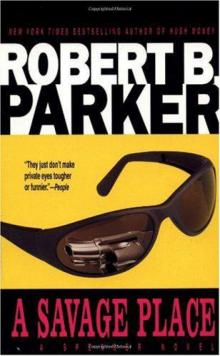 A Savage Place s-8
A Savage Place s-8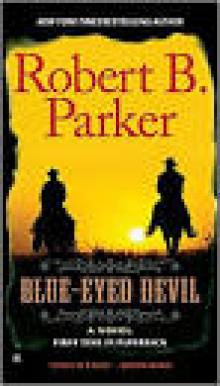 Appaloosa / Resolution / Brimstone / Blue-Eyed Devil
Appaloosa / Resolution / Brimstone / Blue-Eyed Devil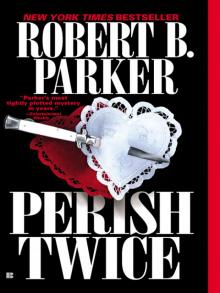 Perish Twice
Perish Twice Spare Change
Spare Change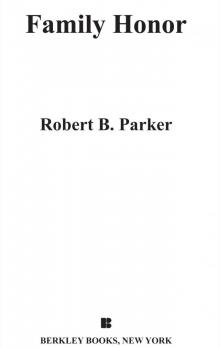 Family Honor
Family Honor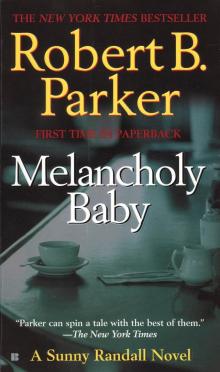 Melancholy Baby
Melancholy Baby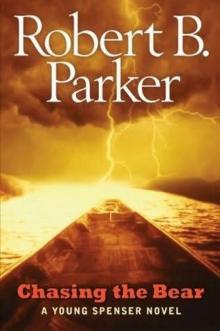 Chasing the Bear
Chasing the Bear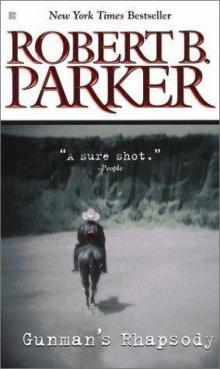 Gunman's Rhapsody
Gunman's Rhapsody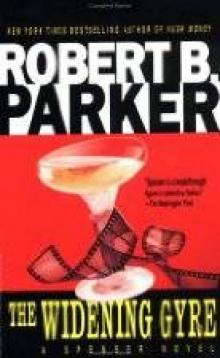 The Widening Gyre
The Widening Gyre Thin Air
Thin Air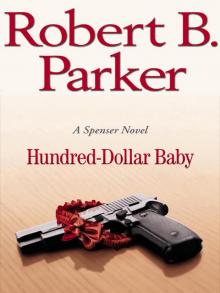 Hundred-Dollar Baby
Hundred-Dollar Baby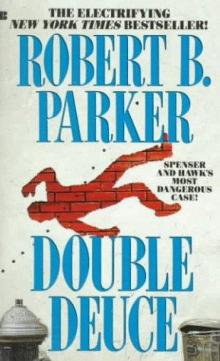 Double Deuce s-19
Double Deuce s-19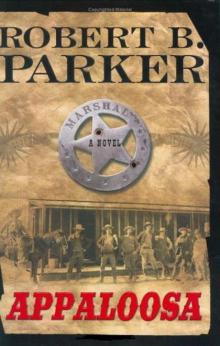 Appaloosa vcaeh-1
Appaloosa vcaeh-1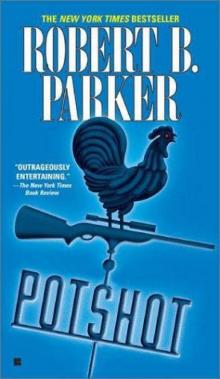 Potshot
Potshot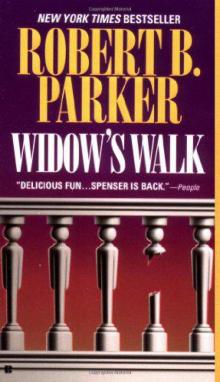 Widow’s Walk s-29
Widow’s Walk s-29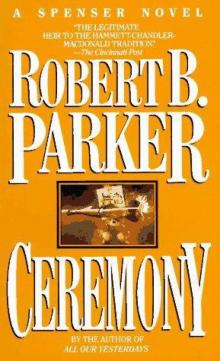 Ceremony s-9
Ceremony s-9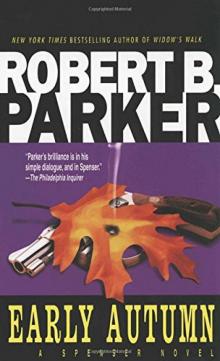 Early Autumn
Early Autumn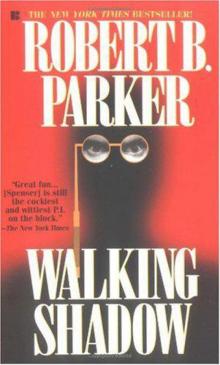 Walking Shadow s-21
Walking Shadow s-21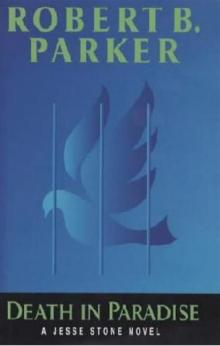 Death In Paradise js-3
Death In Paradise js-3 Shrink Rap
Shrink Rap Blue-Eyed Devil
Blue-Eyed Devil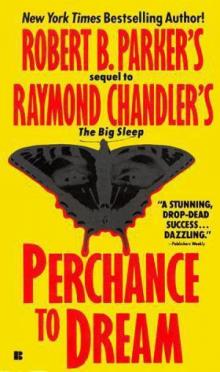 Perchance to Dream
Perchance to Dream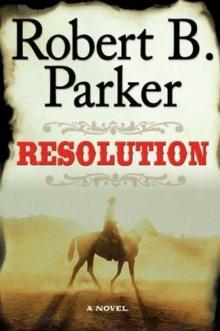 Resolution vcaeh-2
Resolution vcaeh-2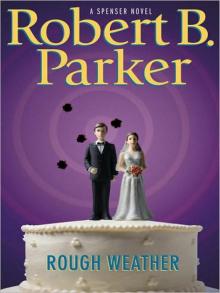 Rough Weather
Rough Weather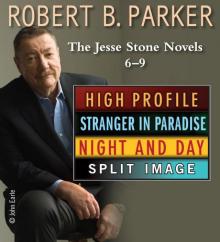 The Jesse Stone Novels 6-9
The Jesse Stone Novels 6-9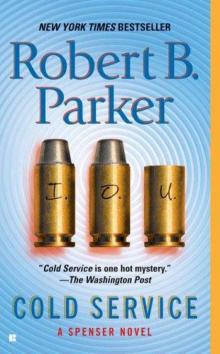 Cold Service s-32
Cold Service s-32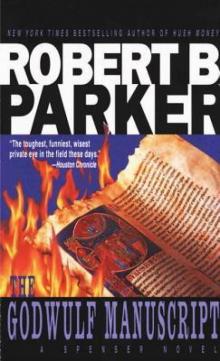 The Godwulf Manuscript
The Godwulf Manuscript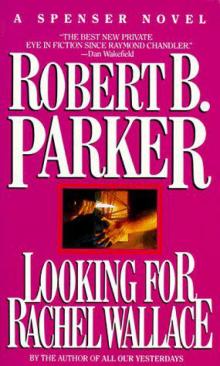 Looking for Rachel Wallace s-6
Looking for Rachel Wallace s-6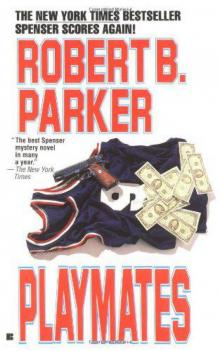 Playmates s-16
Playmates s-16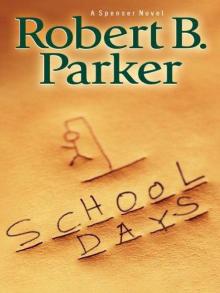 School Days s-33
School Days s-33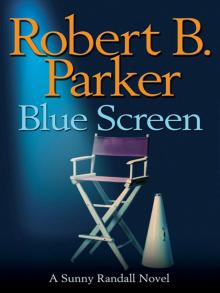 Blue Screen
Blue Screen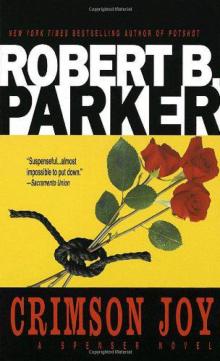 Crimson Joy
Crimson Joy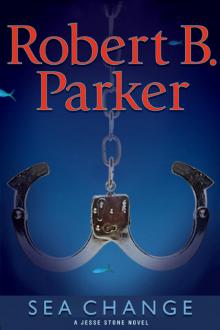 Sea Change js-5
Sea Change js-5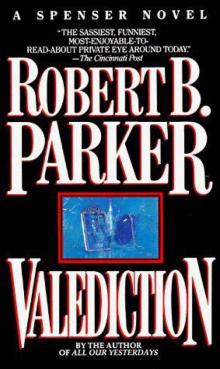 Valediction s-11
Valediction s-11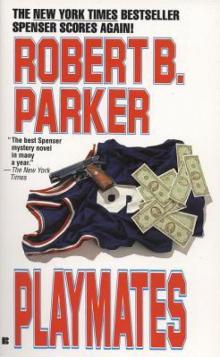 Playmates
Playmates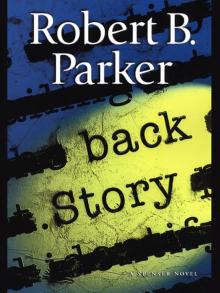 Back Story
Back Story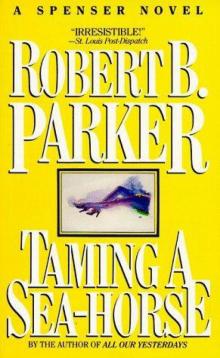 Taming a Sea Horse
Taming a Sea Horse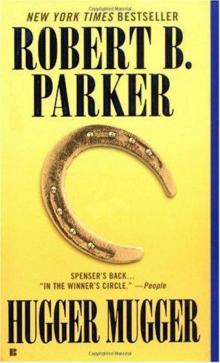 Hugger Mugger
Hugger Mugger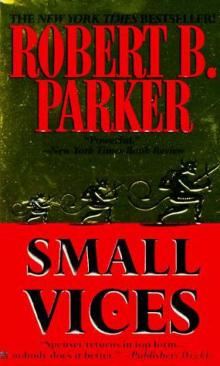 Small Vices s-24
Small Vices s-24 Silent Night: A Spenser Holiday Novel
Silent Night: A Spenser Holiday Novel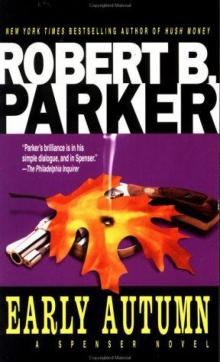 Early Autumn s-7
Early Autumn s-7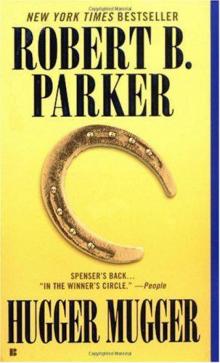 Hugger Mugger s-27
Hugger Mugger s-27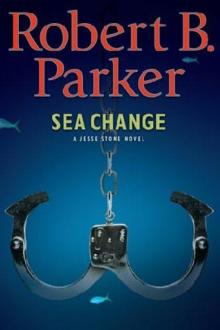 (5/10) Sea Change
(5/10) Sea Change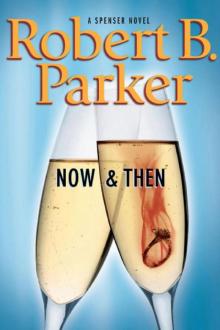 Now and Then
Now and Then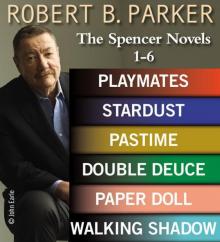 Robert B. Parker: The Spencer Novels 1?6
Robert B. Parker: The Spencer Novels 1?6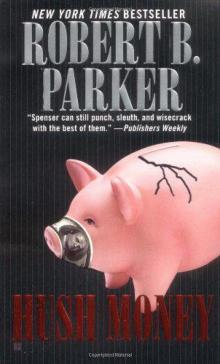 Hush Money s-26
Hush Money s-26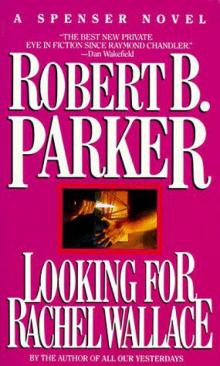 Looking for Rachel Wallace
Looking for Rachel Wallace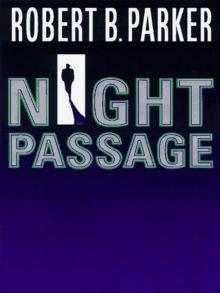 Night Passage
Night Passage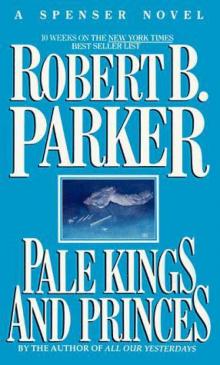 Pale Kings and Princes
Pale Kings and Princes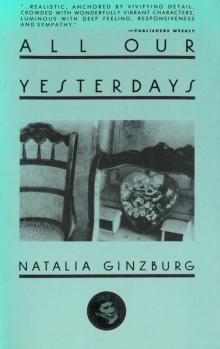 All Our Yesterdays
All Our Yesterdays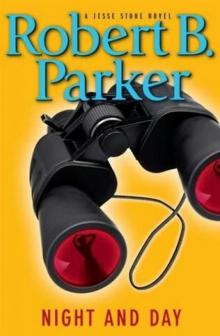 Night and Day js-8
Night and Day js-8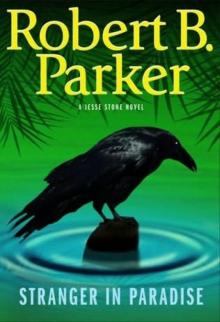 Stranger in Paradise js-7
Stranger in Paradise js-7 Double Play
Double Play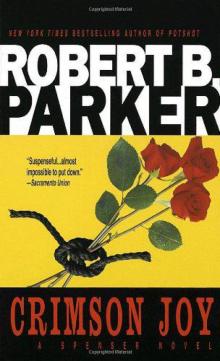 Crimson Joy s-15
Crimson Joy s-15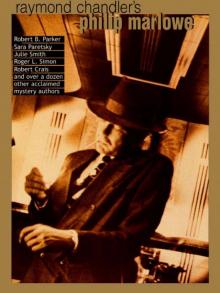 Raymond Chandler's Philip Marlowe
Raymond Chandler's Philip Marlowe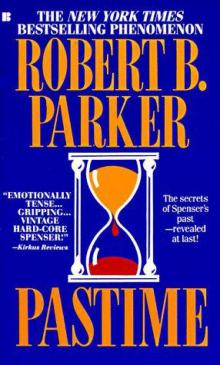 Pastime
Pastime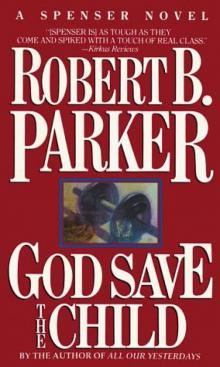 God Save the Child s-2
God Save the Child s-2 Bad Business
Bad Business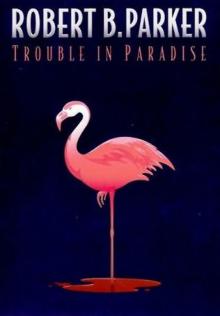 Trouble in Paradise js-2
Trouble in Paradise js-2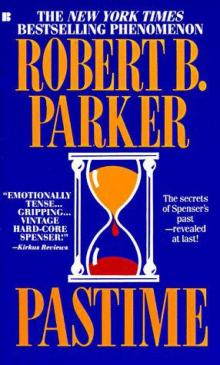 Pastime s-18
Pastime s-18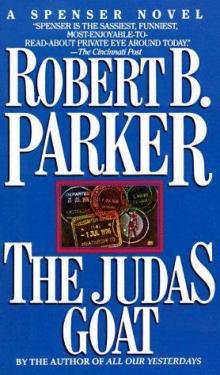 The Judas Goat s-5
The Judas Goat s-5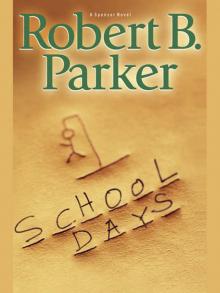 School Days
School Days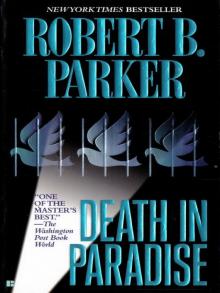 Death In Paradise
Death In Paradise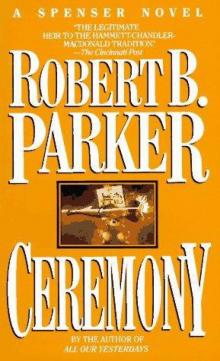 Ceremony
Ceremony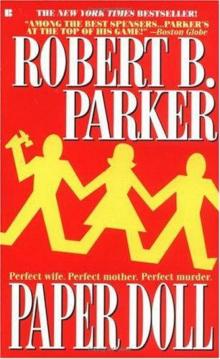 Paper Doll s-20
Paper Doll s-20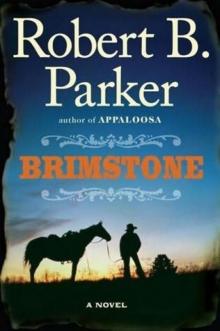 Brimstone vcaeh-3
Brimstone vcaeh-3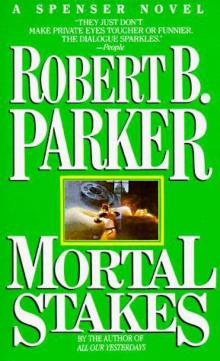 Mortal Stakes s-3
Mortal Stakes s-3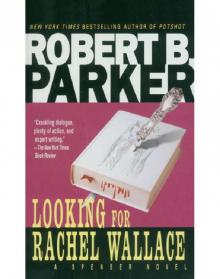 Spencer 06 - Looking for Rachel Wallace
Spencer 06 - Looking for Rachel Wallace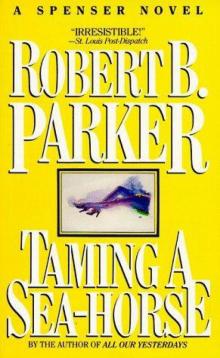 Taming a Sea Horse s-13
Taming a Sea Horse s-13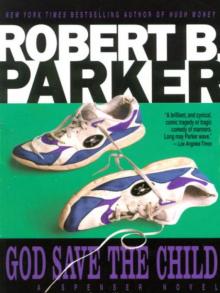 God Save the Child
God Save the Child Chance
Chance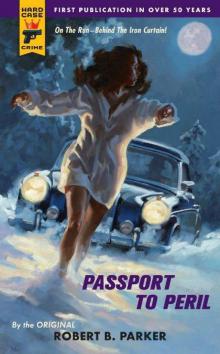 Passport To Peril hcc-57
Passport To Peril hcc-57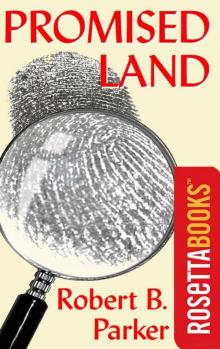 Promised Land
Promised Land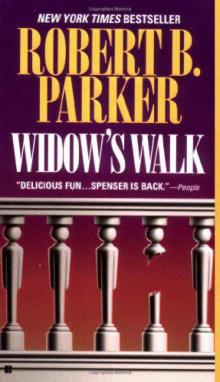 Widow’s Walk
Widow’s Walk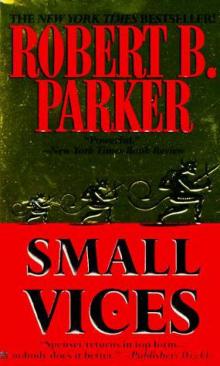 Small Vices
Small Vices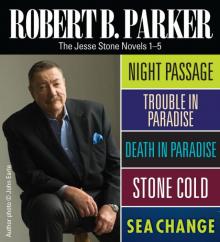 Robert B Parker: The Jesse Stone Novels 1-5
Robert B Parker: The Jesse Stone Novels 1-5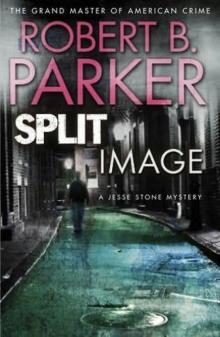 Split Image js-9
Split Image js-9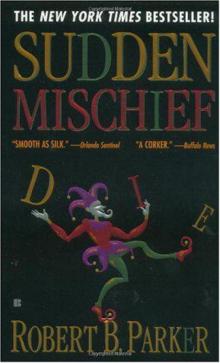 Sudden Mischief s-25
Sudden Mischief s-25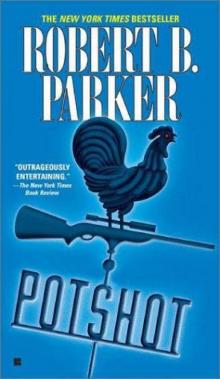 Potshot s-28
Potshot s-28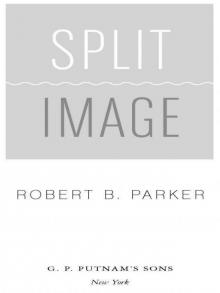 Split Image
Split Image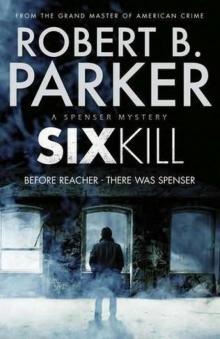 Sixkill s-40
Sixkill s-40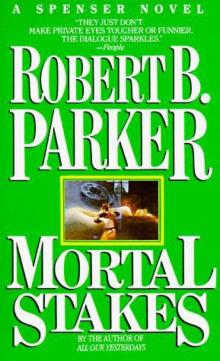 Mortal Stakes
Mortal Stakes Stardust
Stardust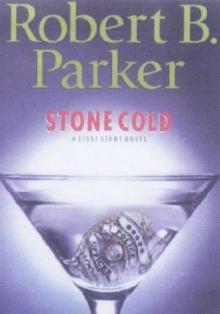 Stone Cold js-4
Stone Cold js-4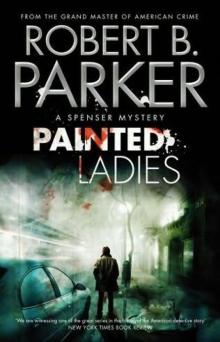 Painted Ladies s-39
Painted Ladies s-39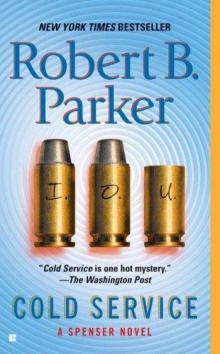 Cold Service
Cold Service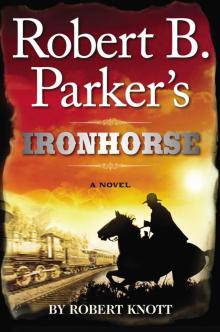 Ironhorse
Ironhorse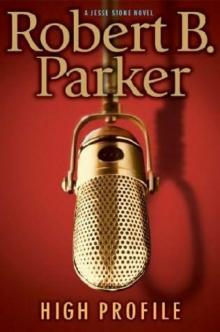 High Profile js-6
High Profile js-6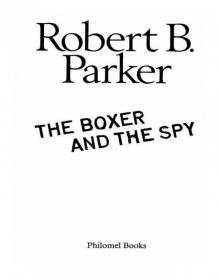 The Boxer and the Spy
The Boxer and the Spy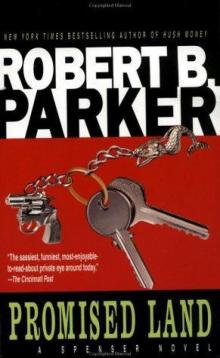 Promised Land s-4
Promised Land s-4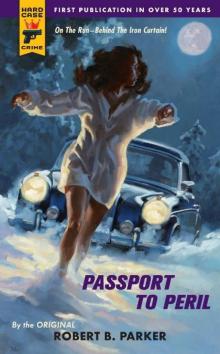 Passport to Peril (Hard Case Crime (Mass Market Paperback))
Passport to Peril (Hard Case Crime (Mass Market Paperback))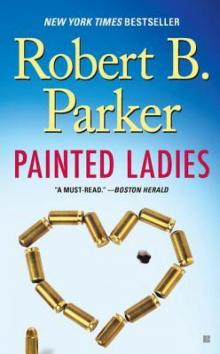 Painted Ladies
Painted Ladies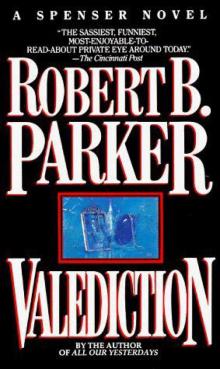 Valediction
Valediction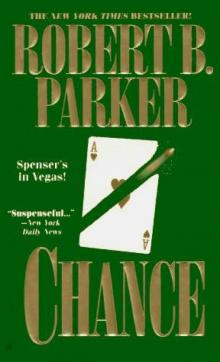 Chance s-23
Chance s-23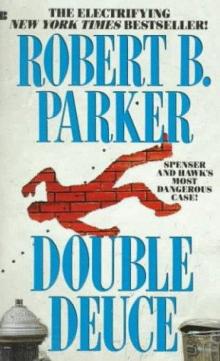 Double Deuce
Double Deuce Wilderness
Wilderness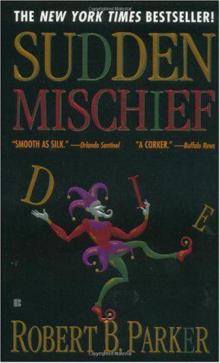 Sudden Mischief
Sudden Mischief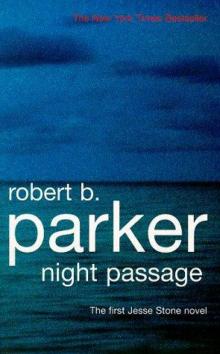 Night Passage js-1
Night Passage js-1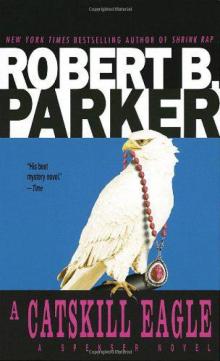 A Catskill Eagle
A Catskill Eagle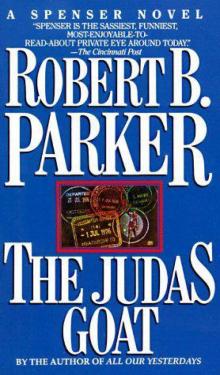 The Judas Goat
The Judas Goat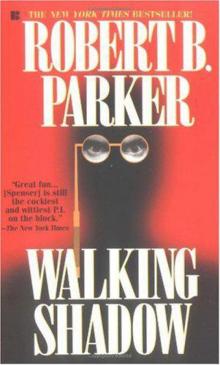 Walking Shadow
Walking Shadow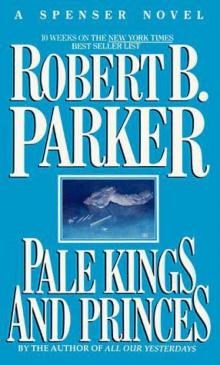 Pale Kings and Princes s-14
Pale Kings and Princes s-14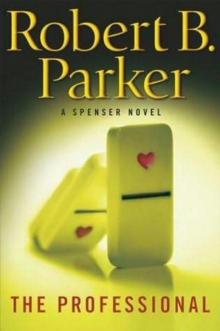 The Professional
The Professional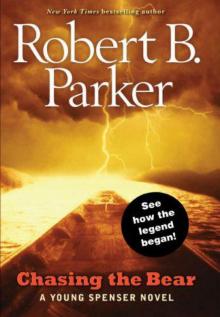 Chasing the Bear s-37
Chasing the Bear s-37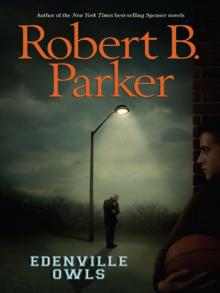 Edenville Owls
Edenville Owls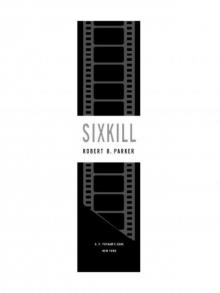 Sixkill
Sixkill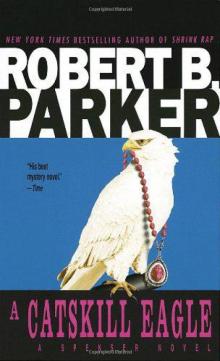 A Catskill Eagle s-12
A Catskill Eagle s-12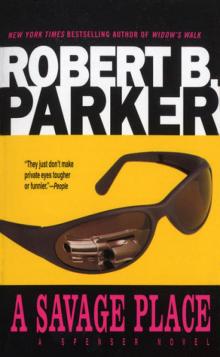 A Savage Place
A Savage Place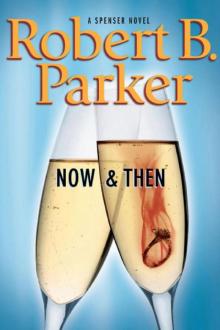 Now and Then s-35
Now and Then s-35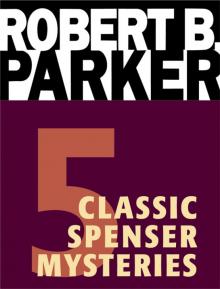 Five Classic Spenser Mysteries
Five Classic Spenser Mysteries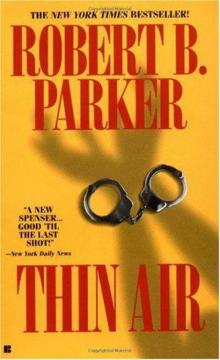 Thin Air s-22
Thin Air s-22